Have ants killed my tree
I have a Ginko that was infested by ants. The leaves have all turned brown and the only thing green are the small shoots that grow from the base.
I planted it deep and wide with the proper soil requirements.
My question is should I allow the main trunk to die salvaging the shoots or is it worth trying to save the main portion of the tree.
Comments (46)
katrina1
16 years agoHow deep did you plant the tree? Is it planted so deeply that the root flare is now covered?
What type of ants have invaded the tree. Are they Carpenter ants, or some other wood eating type ant or termite?
In most cases such invaders are attracted to stressed, rotting, or previously softened woods.
Has the mulch been allowed to cover the root flare and trunk to the point where moisture has been retained and attracted such invaders?
I have seen ants which do not ingest wood, but instead build their nest in cavities created in trees and other wood that has already been damaged by fungi and wood eating bugs. Could that be what is happening in your tree?
spruceman
16 years agoI don't know what kinds of ants they are, but there are some kinds of ants that will kill trees that are beginning to shade the territory around their ant hills. I had a problem with this when I planted pines and spruce trees in an old field where there were ant hills. The ants inject the little trunk with formic acid, which causes blisters and kills the cambium. But once a tree develops a little thickness to its bark, the ants can't penetrate it. Look for ant hills in the area. Maybe you can put a couple in a jar and take then to your local ag extension office for identification. The ants here in MD that kill little trees like this are medium sized to large red/black ants and they are very aggressive. I don't think carpenter ants do this, and I don't think the really small brown ants do this.
I saved my trees by killing the ants in their hills. But I didn't know what was killing my trees until I got some help, and by that time thay got about half a dozen.
--Spruce
Related Professionals
Holly Springs Landscape Architects & Landscape Designers · Tempe Landscape Architects & Landscape Designers · Arden-Arcade Landscape Contractors · Bedford Landscape Contractors · Columbine Landscape Contractors · Hendersonville Landscape Contractors · Middletown Landscape Contractors · New Providence Landscape Contractors · Parkland Landscape Contractors · Winter Gardens Landscape Contractors · Chesterfield Siding & Exteriors · Wilmington Siding & Exteriors · Harrisburg Decks, Patios & Outdoor Enclosures · Overland Park Decks, Patios & Outdoor Enclosures · West Palm Beach Decks, Patios & Outdoor Enclosuressmallmouth1
16 years agoThat seems very strange to me. I admit I am not an expert on ants but know quite a bit about insects in general. I understand the Carpenter Ant theory possibly if a tree is rotting. Ants generally are quite beneficial and in heavy numbers are usually signs of Aphid infestation or other insect problems on your tree or it may be that the tree has nectar which they like. On trees with aphids, they "milk" the aphids for the honeydew they emit and in return protect the aphid from predators etc. etc.
But an ant stinging a tree in order to kill it just seems ridiculous. A tree is an inanimate object just like a wall or rock to them. Trees omit no smell or chemical stimuli that would set them off. A foreign ant, however, from a different colony, might for example. Even if they did decide to attack a tree I seriously doubt if their "stinger" could penetrate anything but soft insect tissue. Bark? (Even if it was young "bark".) I think not. Why would an ant care or how would it even know if shade was in it's area? Why would it matter? They eat caterpillars and moths and whatever they can find. They could care less if it's shady! I see tons of ants in the shade. Can anyone out there back me up on this? Again I don't in anyway mean to be rude, and I hope my tone doesn't sound like it (it's hard to reflect your tone when typing), I just bring this is up to provide some points for discussion. And yes, I (As we all have) have been proven wrong many times in the past many times before. And, I am not familiar with ants in Virginia, I'm in Michigan with a more Northern Climate. I've heard some of the Southern varieties can be quite bad.
laceyvail 6A, WV
16 years agoI too, in 45 years of gardening, have never heard of ants killing a tree.
texasredhead
16 years agoThis is not Peru. You probably planted the tree to deeply which has smothered the root system. This might take a few years but it will kill the tree. Insects to not attack healthy trees. In the future in planting trees, the root flare should be visible. That is where the roots begin to flare away from the trunk.
spruceman
16 years agoSmallmouth:
Well, my project forester in Western MD warned me about the ants Killing my pine and spruce trees. I did not take any action--I hated killing the ants without being sure. After my trees started dying and I saw the blisters, I thought it may have been some infection.
I then took a couple of the trees with the blisters into the office of the Forest Service in Washington, D.C. and there was a good discussion among about 6 or 7 of the forest research staff in the office. The diagnosis without a doubt, ANTS.
Take it up with the USDA Forest Service.
--Spruce
katrina1
16 years agodrdublin, could you be talking about the fire ants so often seen in the valley down in southern Texas and which have migrated to states north of Texas? If so, I am sorry about suggesting other sources of your tree's trouble.
If your tree is young, I certainly can see a colony of fire ants making a meal of it. Even an older tree's fleshy roots would be considered as food by these ants which will eat just about anything and are such efficient nest builders that I could see them disruping the roots of a tree with their nest building practices
texasredhead
16 years agoVery simply, if ants routienly killed trees there wouldn't be a tree standing any where!
drdublin
Original Author16 years agoYes I live in the DFW area and they are fire ants. It is about 5 feet tall and it has only been planted for 1 year and 2 months.
Last fall I saw some patches on the tree and thought it was sun scald so I put on a tree wrap. That allowed shelter for the ants and may have been the cause of my problems.
Dibbit
16 years agoIt sounds as though, if it is fire ants that are nesting at your tree's base, then they haven't, directly, killed your tree. Indirectly, through their actions in digging around the roots, and maybe in severing small feeder roots, they contributed to the demise. Any tree you plant in the future, I would keep an eye out for fire ant nests and take action at the first sign.
They must have made watering the tree interesting - yet another reason to move them along or kill them.
You can try to let one of the shoots grow up into a new tree - after all, you do have some root system there. Because there may be damage you can't see, from the ant's activities, the entire tree may still die. (I assume you have dealt with the fire ants by now?) If you want to let it go for a year, and see what happens, I would think it is worth the chance. Cut the dead trunk off as low to the ground as you can. Shoots from the roots, rather than shoots from the trunk are seemingly more likely to develop into a good tree, so don't be too careful about the shoots on the trunk.
I would let 3-5 shoots grow for the summer, and then, in the late fall, pick the strongest and remove the rest. You may get more shoot growth in the spring - unless it looks like your 'chosen' shoot is not doing well after all, I would rub them off as soon as you see them.
Good luck.
rhizo_1 (North AL) zone 7
16 years agoOne of the 'tricky' aspects about this situation is that our original poster might have planted one of the many grafted male cultivars. This makes utilizing shoots from the root system a real problem (in the future).
Dibbit
16 years agoRhizo, I hadn't thought of that.
Dr. Dublin, the point Rhizo is making is that the root stock MAY be a male tree or MAY be a female tree. You really do NOT want a female tree anywhere near by, and there's no way to tell, for a number of years, until it flowers (I may be wrong, but I think gingkos don't mature enough to flower for at least 10 and maybe 15 years!). You may, after all, be better off to dig up this one, and get one you KNOW is male. The fruit, to put it politely - STINKS!
drdublin
Original Author16 years agoFrom my research you cannot determine the sex without an expert.
The ants are now dead. I haven't checked, but if the branches and trunk still have some green in them should I try and keep the trunk alive?
Thanks for all your help.
Dibbit
16 years agoYes, if the cambium layer is still green, the tree may make a recovery. Don't give up on it too soon, if that's the case. I would check to see if there is any evidence of whether the tree was a grafted one or a seedling. If grafted, and IF it dies, I would replace it. If the green is above any possible graft, then I would continue to wait. If there is growth on the trunk, and below a definite graft, I would rub it off.
calliope
16 years agoSpruceman is correct. Allegheny mound building ants inject formic acid in the soil around their mounds and are quite capable of killing trees and shrubs. They started moving into this area about a decade ago and we have a mound the size of a bushel basket on our property and I had to research them to find out what they were and ran across that tidbit of information. Our ant hill is a stop over for a master gardener group field trip. No harm has been done for a few years, but it look like the lilac bush under which they've established their colony is declining.
spruceman
16 years agocalliope:
Thanks--I thought I was a voice in the wilderness on this one. I talked to the experts of experts on the matter at the Forest Service, and the reaction I got was I was nuts. There was a study done a long time ago about how they keep the immediate area of their mounds free of shading vegetation, but I don't have it in front of me now. But, of course, I saw it first hand, and when I got rid of the ants, no more of my little pine and spruce trees got those blisters and died. But some ants got a prized, original grafted apple tree I had when I failed to see and get rid of an ant mound not far away--that was a painful loss!
--Spruce
drdublin
Original Author16 years agoWell there is no green on the main trunk. I've given up on it and allowed the shoots to grow. The ants did kill my tree or the main part of it at least.
katrina1
16 years agoHave you gotten rid of the ants? If not what will keep them from killing the newly developing tree once the strongest sprout gets big enough to shade the mound, and to grow fresh tender feeder roots which Fire ants like to eat?
montanamom
16 years agoI have sprinkled Equal around the base of my trees (the sweetener); to help get rid of pesky ants. Since it is a poison, it helps to eliminate them once they eat the granules.
mswmom
16 years agoI just happened to be reading this post and got nervous about the ants that I have seen on my Crepe Myrtle. This is an established tree that was not pruned by the previous owners of the house I live in. The tree has leaves and seems healthy. Is it okay for there to be a lot of ants on a tree? I was just spraying them off with a hose.
calliope
16 years agoIt's pretty typical to see ants on trees, and I wouldn't be worried about them. I see ants on most trees and it's entirely normal. If you see a mound under your tree about the size of a volkswagon, then start getting antsy.
dodgerblue
16 years agoI planted a Mimosa last spring (I know they're invasive...whatever) and a couple months later noticed that the tree was not looking as healthy. I watered it and there started a line of ants up the trunk carrying what looked like pieces of root in their mouths. We sprinkled some 7-dust around the trunk and that seemed to get rid of them, or they drowned either one. But the tree still don't look too hot.
spruceman
16 years agoAs the poster of the item about ants killing trees, let me clarify for all of you who may be worried when you see ants on a tree. The ants that kill young trees are the Allegheny mound ants. These ants kill trees to keep their territory from being shaded. They do that only to trees near their mounds--generally within 50 or maybe as much as 75 feet. They are only able to kill trees with thin bark that their formic acid injections can penetrate. If you can't find any large ant hills near your trees--two feet across or so and maybe at least 10 inches high--you need not worry. These ants are also large ants and are red and balck in color.
Almost all the ants you see on trees are harmless. One other exception--sometimes--is carpenter ants. These are large black ants that can eat out the dead heartwood of a tree if they have access through a dead area in the trunk. The damage these do is to weaken the central support of a tree by eating out the heartwood. This kind of damage is fairly rare. I have seen it a couple of times in my Norway spruce trees where I had large "tree surgery" cuts near the base.
All other ants are harmless on trees, except for perhaps one other exception--the ants that harvest the "honey" produced by aphids. These ants protect the aphids, which suck the sap of the trees. I see these on young white pine and sometimes on young Norway spruce trees. Kill the ants and the aphids are defenseless. But I usually kill the aphids with my hands and leave the ants alone. Sometimes these ants can be the Allegheny mound ants, so they can be a double threat. But again, unless you see the mounds near your trees, you don't have the Allegheny mound ants.
--Spruce
texasredhead
16 years agoThere are two give-aways in the original post,"I planted it deep and wide with the proper soil requirements". If the tree was planted so deeply as to cover the root flare by several inches in a hole with heavily ammended soil, the tree is dying and various insects including ants are simply being opportunistic. Forget all this crap about peruvian and allegheny ants killing the tree. Also, fire ants are easily controlled with Amdro bait.
spruceman
16 years agoredhead:
Why do you insist on saying what I report about the Allegheny mound ants killing trees is "crap." Can you elaborate and explain your reasons a little?
--Spruce
texasredhead
16 years agoOK spruceman, the main diet of Allegheny Mound Ants includes insects, aphid honeydue, scale insects and mealybugs found in trees. They are more or less considered beneficial. They like shady areas which means they are around trees. THEY DO NOT EAT WOOD. Even carpenter ants only eat dead wood. Now, in my humble opinion, I consider the main cause of tree failure to be 1.) Improper planting and 2.)Mounding soil over the root area generally for flower beds. As the tree comes under stress various insects come into the picture leading to the false assumption that some ant or what ever other insect is killing the tree. Reminds me of a neighbor that topped several large trees in his back yard. As the trees began to die, woodpeckers began to drill holes for nests. His comment, those GD woodpeckers are killing my trees.
Dibbit
16 years agoRedhead, in an admittedly cursory google check (ants, Allegheny mound, toxic forestry) I found 2 articles about how they clear vegetation away from around their nests, including trees up to 5-6 years old. While their DIET is as you describe, they do ACT as Spruceman has said, and as his local forestry agent said, and keep any vegetation away from an area around their nests. How they do it wasn't made clear in either of those articles, but I am sure a deeper search would have told me so - most certainly as described by Spruce, who, by the way, never said they eat the trees, only that they kill them. Please don't denigrate unfamiliar facts with ridicule. I will admit to being as sceptical as the next person, but I do try to double-check a statement before dismissing it, and certainly before calling it crap.
saccharum
16 years agoHere's an extension fact sheet on Allegheny mound ants: Allegheny Mound Ants (.pdf)
Spruceman was correct when he said they kill small trees by injecting them with formic acid.
spruceman
16 years agoThanks dibbit and saccharum for the clarification. Redhead is right, however, about the main causes of tree failure. Ant problems are rare, but we do need to be aware of the danger. I ignored a warning and paid a fairly small price the first time--losing 4 young white pine trees before I realized my mistake. Then later I lost a unique grafted apple tree by not being vigilant and finding the mound nearby. That tree can never be replaced. Many of us have prized rare trees, so if there is any possibility of these ants being in the area, we need to be careful. When my forester first warned me my reaction was, "why kill something if I don't know if it is really doing any harm." Also, the forester didn't give any explanation, which made it easy for me to ignore his warning.
As for the carpenter ants--this damage is even more rare but I think a warning here is also in order. My understanding is that these ants don't actually "eat" the wood--I didn't mean to say that. I meant they "eat out the heartwood" as a manner of speaking--they will hollow out the heartwood for their nests. If this goes on for long enough they can weaken a tree. Again, I have first hand experience of this, so I have no doubts. A search of the literature on this has yielded mixed results, some say there is no problem, others reporting what I have seen. I suggest you be careful if you see carpenter ants in one of your trees.
--Spruce
sharonkayday_yahoo_com
16 years agoI live in Austin, TX. I'm just an average person who loves to work in my yard. Two days ago a formerly healthy (as of fall), 6" diameter pine tree fell over. It broke about an inch below the ground. It was/is ant infested with small red ants with black bottoms. I also have an extremely large, very healthy true cedar that is now infested. One tree (maple?) died shortly after we bought our house 10 yrs ago. It had ants. There is a creek behind our yard, but not close to the tree that fell over or the cedar; there's no excessive watering, mulch or such at the base of the trees. I'm getting an expert before they kill all my trees. Cross your fingers.
spruceman
16 years agoAs the writer of the post just prior to yours, Maybe I can help here. What you describe here does not fit either of the two cases I know of where ants can damage or kill a tree. Ants can get into a tree after something else has caused the damage. If I could see the tree I might be able to speculate about what happened, but right now I would not suspect the ants.
The ants that killed my pine trees did so by injecting formic acid through the very thin bark of very small trees--not much more than an inch in diameter. I very much doubt they could attack and kill a pine tree six inches in diameter. I also doubt that the infestation of the cedar is something that started with the ants--I suspect that something else created an environment where the ants could enter. The maple you describe might have had carpenter ants, but again these don't directly kill a tree. They can hollow out otherwise sound heartwood and weaken a tree so it may break, but they don't get into live sapwood and thus kill a tree directly.
--Spruce
ms_minnamouse
16 years agoI'm in MD too. Ants have killed more than a few of my plants. They build their colonies right at the base of the trees and plants and in the roots. If I put the shovel in the dirt, they erupt out of the ground. It's really disgusting... I'm not an bug person. No bait I've tried really seem to make any dent. My yard is pockmarked by ant hills and I have 2 1/2 acres. You can't sit on the grass without sitting on an ant hill.
lorraines
15 years agoMy apple tree I got from my dad is been invaded by ants. They climb all over the place. My tree is 6 yrs. old. I just tried that petroleam jelly but there still there.
Then when the apples are growing big brown scabs or something. What could be doin this?
Lorrainekman04
15 years agoAnts are often erroneously blamed for the demise of plants. In all my years of dealing with plants, I've never seen ants kill any trees or shrubs, or even annuals or perennials. I've seen and cut down tons of trees with plenty of ants in them, but the ants were just mostly opportunists taking advantage of a damaged, dying, or already dead plant to make a home inside or merely using it as a "feeding ground". Sure, I've seen carpenter ants cause a tree to break or fall over(usually in a storm), but the tree was damaged in some way that allowed them to enter the heartwood to make their nest in, in the first place.(improper pruning and mower damaged trunks being common)
Many, if not most, of the ants you find on or in trees and shrubs are in fact carnivorous and just use the plant as a home or hunt other bugs on it, they don't eat of kill it. Certainly there are harmful ants, like the ones that killed spruceman's very small trees, but as far as I know those aren't found further West than about Indiana in the North and Georgia in the South.
So, I'd be looking for some other reason for your dead trees, and not be quick to blame the ants.
spruceman
15 years agokman:
I guesss I am at the point that I don't know what else I can say. One or two others have chimed in to support what I have said about how ants can kill small trees and other plants. I learned about this when I took a pine tree that had died to the headquarters of the research office of the US forest Service in Washington, DC. I describe what I learned in an earlier post under this topic.
I know neither I nor anyone else can ever change your mind--it won't matter if the person is a forest research scientist who has studied the matter, or if it is a person like calliope or myself who has observed this many times.
But I chime back in to warn people reading this that your continued assertion that ants do not and/or cannot kill plants and small trees is something that somehow has becomed ingrained in your brain, and that you maintain this belief in spite of forest science research and the observations of others that contribute to this forum.
Sorry, I don't mean to be harsh here, but I must set the record straight! People need to know about what at least one kind of ants can do and take measures to protect their plants and trees. I was slow to learn about this, much to my (or my trees') detriment.
--Spruce
kman04
15 years agoHi spruceman!
I don't know how you made so many incorrect inferences about my posting here. I simply stated that "Many, if not most, of the ants you find on or in trees and shrubs are in fact carnivorous" and later said Certainly there are harmful ants, like the ones that killed spruceman's very small trees". I don't know how that in any way says "your continued assertion that ants do not and/or cannot kill plants and small trees". In fact I said just the opposite.
So, I wasn't denying the reality of your posts nor that there certainly are a few ants which can kill/harm plants. The point of my post was that the ants you are talking about aren't native to the area that the poster with the problems is(nor are they found in 3/4 of the USA), and that the vast majority of ants you find on/in trees and shrubs are in fact just taking advantage of a situation, not causing it. The fact that I've never seen it happen here, further illustrates A)how rare it is, and B)I'm 800 miles West of the native range of the ant species you had so many problems with(As far as I know, no ant species native to my area are directly harmful to plants).
spruceman
15 years agokman:
You have my sincerest apologies. I just didn't read your post carefully, and I wish I knew why and how I failed to do that. No excuses. Sorry!
--Spruce
junglebar
11 years agoI have a similar problem with my nectarine tree that I planted 4 years ago. Everything always seemed fine with it but just today I noticed what seemed like a chunk missing from the base of the tree and millions of ants swarming around it and up and down the tree. There also seems to be soft pieces of wood around it that can just peel off. The entire rest of the tree seems to be fine and bearing lots of fruit, but obviously I'm very concerned. Any ideas of what to do?

whaas_5a
11 years agoUsually its another pest or disease that causes rotting that attracts the ants.
The only case in which I've seen ants "stress" trees is that they burrow in the tree's root system and create air pockets, which in turns can kill the roots.
Escpeically an issue in more sandy soils. I've been compressing or flooding the ant hills as I see them. At least keeps them at bay.
User
11 years agoI agree, for the vast majority of cases, the ants go in opportunistically after the tree is already in serious decline. Once the ants have been discovered, it's probably too late for the plant.
wisconsitom
11 years agoSpeaking of carpenter ants, my understanding of their modus operandi is that they "farm" a species of wood-decaying fungus on wood that is already predisposed to rotting, by being constantly wet or some such. It is then this fungus that serves as their food. I'd say carpenter ants have pretty good taste, although I doubt they taste good.
I think that for clarity, OP's tree was almost certainly not killed by ants but rather, by a host of improper aspects to the way it was planted. There could also be other unknown bits of its history which, if we knew about them, could also be assigned blame or partial blame. And second, there are ants which kill trees directly-those of which Spruceman speaks. BTW Spruce, thanks for that info-I'd never heard of such ants.
Finally, we know too that in some circumstances, big active ant colonies in the immediate vicinity of young trees or other plants can indeed weaken or kill the plants with their constant digging and churning of the soil in the plant's root zone. I've had this happen with some of my containerized annual plantings at work. I'm not a killer by nature but I did have to use soil drench of pyrethroid insecticides to kill the ants. Without this, the plants had no chance of living. The soil simply dries out.
+oM
ken_adrian Adrian MI cold Z5
11 years agothat tree looks telephone poled .... planted too deep
bark is made to be in teh air.. and when it is in the ground.. it can lead to rotting of the bark.. and the eventual decline of the tree ..
i appreciate you using the search function.. but had you started your own post .. replies could have come to you directly ...
ken
sandy808
11 years agoIt's obvious to me that the people who claim ants do not kill trees have absolutely no experience with fire ants or any knowledge of them....I've noticed they are all from more northern states than Florida.
Yes, certain ants will kill trees. Fire ants kill trees and shrubs. They are a horrible scourage here and were imported from Brazil in the early 1900's into Pensacola via cargo ships. They are one of the most miserable creatures on earth, and a prime example of how careless importation of foreign species is so disruptive to another area. In Brazil there is a fly that keeps the fire ants in check there, and then other birds and animals that keep the flies in check, and so on. Here, our native species do not know what to do with them, and they have flourished and gotten out of control. This is all information given to me by our local extension office.
They have become so bad since the last tropical storm on our property, (and other properties in our area that did not flood), that I can't garden or walk to my clotheslines without being bitten. The bites are horrible. They burn, sting, and itch all at the same time, and then the bite forms a nasty pustule. Imagine having 50 bites. Imagine a tree or shrub dealing with them. We are having our farmer's co-op come to treat our whole 10 acres.
They are not just present at the mounds. They scout all over the place. Our property did not flood, unlike many unlucky people in my area, so the fire ants have migrated to properties that stayed dry. They literall float mounds of themselves on top of flooded areas. I saw it with my own eyes.
They have killed 7 rose bushes on fortuniana root stock, 5 citrus trees, and several of my native holly trees so far since the storm. They eat the roots and they bore up into the trunks of the trees. Once established into and near the trees they are almost impossible to get rid of. I've tried everything, including drenches. I am going to have my husband pull them with the tractor and burn them. Since the roots are so damaged I could actually easily remove them with a shovel, but I won't go near them any more.
In addition to all of this it appears that they have displaced many of our native ants, who do not bite, and whom are important to the balance of our ecology. They've even appeared to have eaten all our earthworms. I can't find any in my composted areas.
So, unfortunately, we have to "nuke" our whole property and then try to introduce the beneficials back in.
So yes, ants may have killed the original poster's tree.


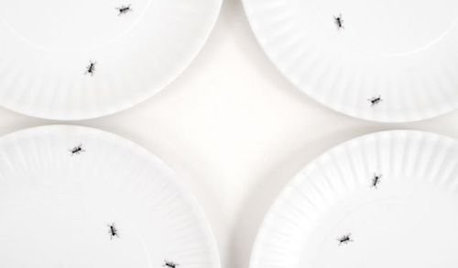

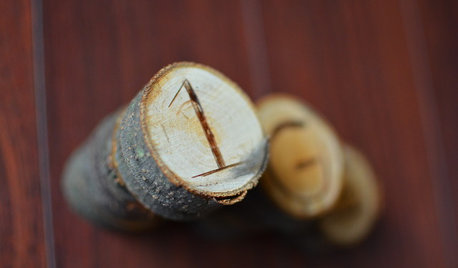
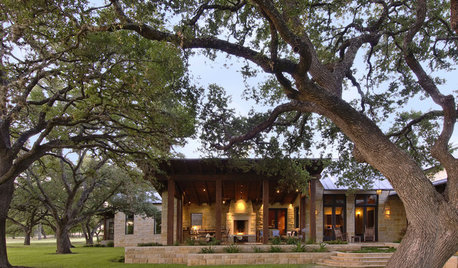
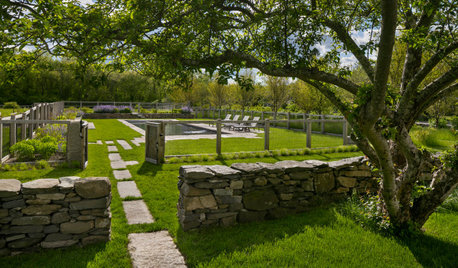
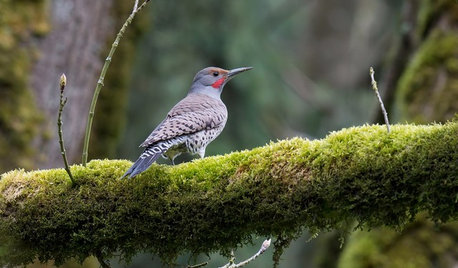









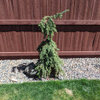

rhizo_1 (North AL) zone 7